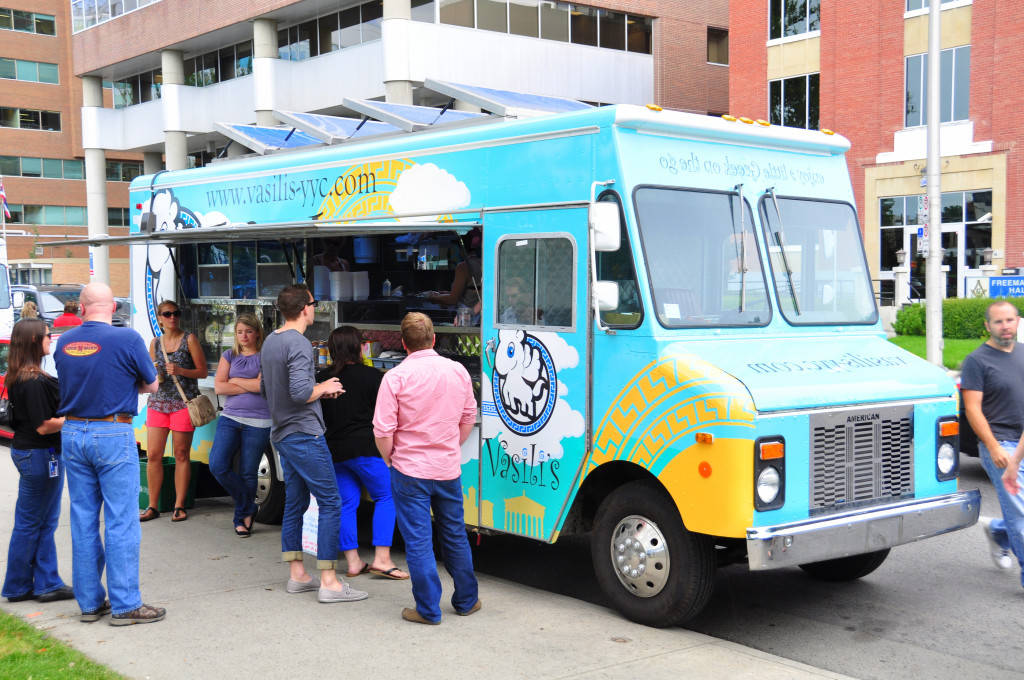Food Truck Business Plans
Food Truck Business Plans
5 Things to Know Before You Launch
From ice cream and sandwich carts to burger and burrito wagons, cities all over the United States are home to thousands of food truck businesses ready to serve up flavorful fare to some hungry customers. In fact, the food truck is a staple of American culture, with pizza trucks in New York City being veritable tourist attractions.
If you’re considering starting up your own food truck business and joining the rich tapestry of American mobile food ventures, The Plan Writers offers you these five tips to help you get the most out of your food truck business plan.
1. Competition is Fierce
Though the industry takes in over $800 million a year according to IBIS World, the market has become saturated in the past decade, much like the restaurant industry. Unlike restaurants, however, there are no food truck companies that dominate the market, though some businesses may have multiple fleets. There are nearly 4,000 food truck businesses in the U.S. competing for a limited spend. Nevertheless, growth prospects are strong: Between 2009 and 2014, the annual growth rate for the food truck industry was 12.4 percent.
Advice:
Competition is strong but favorable industry growth rates leave room for newcomers.
2. Social Media is Your Friend for your Food Truck Business
If you want to compete with established food trucks, you’ll have to out-market them. In particular, you’ll need to build up a strong social media presence that updates customers on the latest. Chi’lantro BBQ, a Korean and Mexican fusion food truck in Austin and Houston has over 13,000 likes on its Facebook page, which it uses to share its trucks’ current locations, savory photos of its dishes, and exciting menu additions.
Don’t limit yourself to just one platform. A broad social media footprint will increase visibility. So, learn the ins and outs of Facebook, Twitter, Instagram, and even YouTube to create a multi-platform marketing message that can reach hungry web users around your city.
Advice:
Don’t get left in the dust. Include an aggressive social media strategy in your food truck business plan and stick to it!
3. Location, location, location…
One of the greatest benefits that a food truck offers over traditional restaurants is that food can be brought to the crowds instead of vice versa. Failing to take advantage of the mobility that your food truck business provides can hurt your business plan.
Therefore, scope out locations that receive plenty of foot traffic and make your presence known. Remember that your location schedule may be irregular: Adjacent to the nearby football stadium is where you might find yourself one Monday night, while the next night we might see you setting up shop by a construction site with dozens of hungry workers.
Advice:
Don’t expect people to come to you. Take your delicious dishes to them.
4. Food Truck Industry Has Its Share of Obstacles
The food truck industry is peppered with regulatory hurdles. Acquiring the proper licensing and permits can be a monumental task and not every city or neighborhood allows food trucks. When cities sharpen their restrictions on food trucks, it can greatly affect the industry.
In 1991, for instance, Chicago reintroduced a city ordinance that made it illegal for food carts and trucks to operate within 200 feet of a restaurant, shaking up the entire mobile food industry. Moreover, finding prime parking – a spot where you can stay parked legally for hours that also happens to be on a street that receives lots of foot traffic – can be near impossible on some days.
Advice:
Have a contingency business plan in place ready in case any prohibitive laws are introduced.
5. Go Beyond Health and Safety Standards
One factor that keeps diners away from food trucks is concerns about cleanliness. Of course, mice droppings, bug infestations, improper handling of food can be (and is) found at restaurants as well. But food trucks seem to have a worse perception among the public when it comes to hygiene. Whether it’s deserved or not, your food preparation procedures may be scrutinized more closely than those of the pizza joint across the street. Fight the food truck stigma by going above and beyond the health and safety standards that are required of you by law.
Advice:
Don’t risk your reputation. Over-deliver on health and safety expectations.
Launching a food truck business is not as easy as it sounds, that’s why creating a solid business plan is an essential part of owning and operating one. It helps you stay focused and on track. A well-written professional business plan can attract potential investors and also develop a course of action. With the assistance of The Plan Writers, we can provide you with a detailed proposal so you may have an effective business plan and a successful company. For a free assessment of your situation and needs, call 1-800-691-6202 today!

